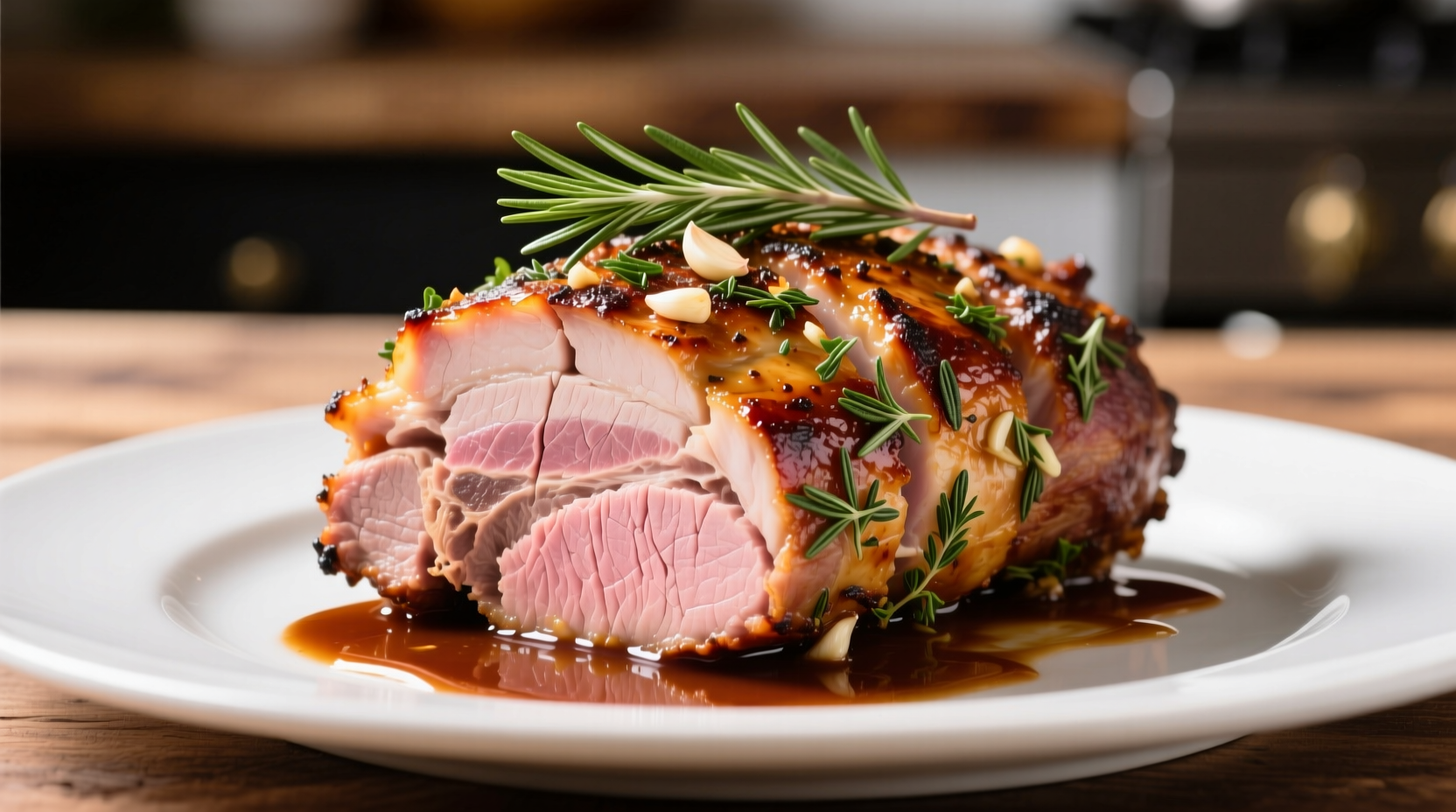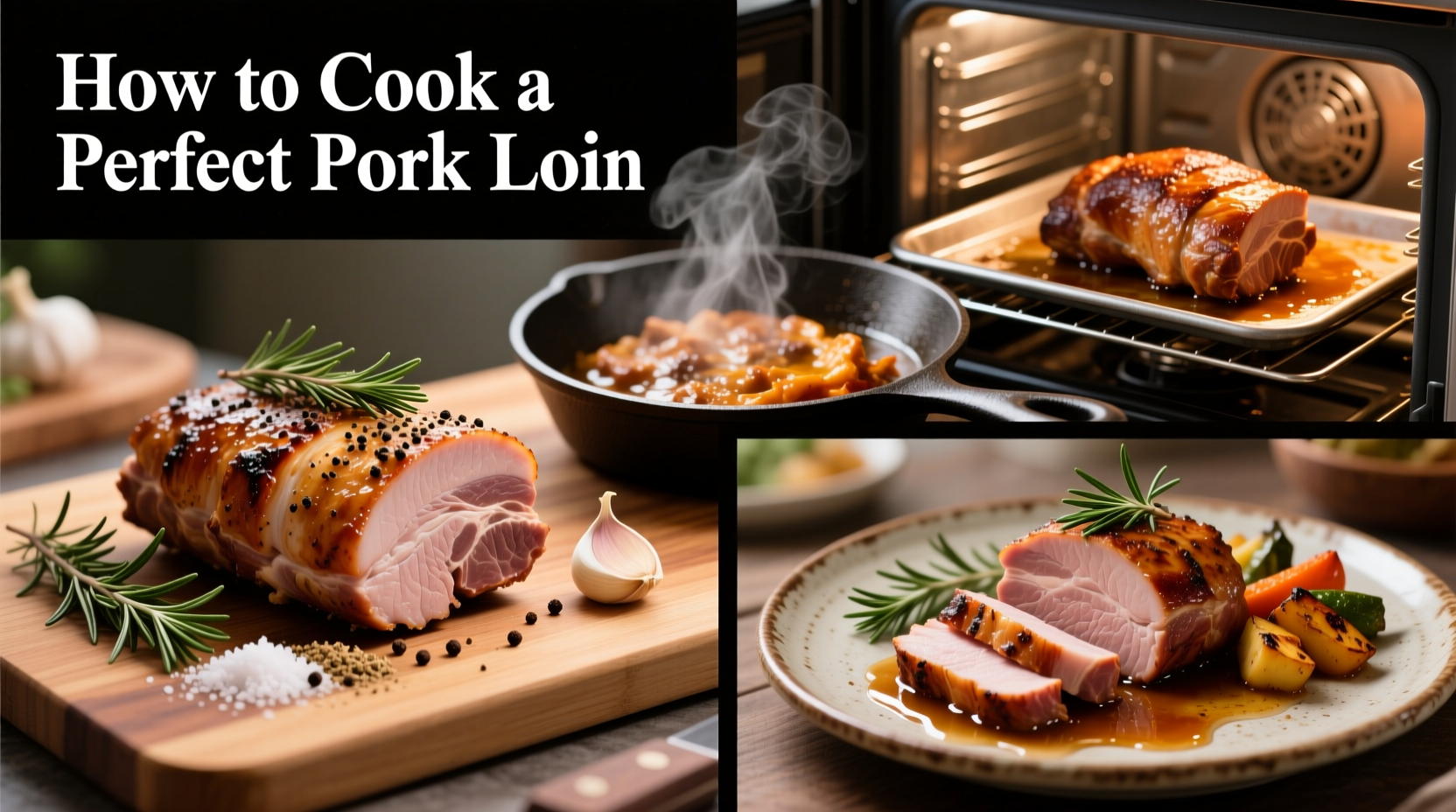Cooking pork loin properly transforms this lean cut into a succulent centerpiece for any meal. Unlike tougher cuts, pork loin requires precise temperature control to prevent drying while ensuring food safety. Follow this comprehensive guide to master the technique professional chefs use in restaurants worldwide.
Understanding Pork Loin: Your Foundation for Success
Pork loin comes from the back of the pig and differs significantly from pork tenderloin (a smaller, more tender cut). This versatile cut works well for roasting, grilling, or searing. The National Pork Board confirms that proper cooking technique makes all the difference in texture and flavor development.
| Cut Type | Weight Range | Best Cooking Method | Internal Temp |
|---|---|---|---|
| Pork Loin Roast | 2-5 lbs | Oven Roasting | 145°F + 3 min rest |
| Pork Tenderloin | 0.5-1.5 lbs | High-heat Sear | 145°F |
| Pork Shoulder | 4-8 lbs | Slow Roasting | 195°F |
Essential Preparation Steps
Proper preparation sets the stage for perfect results. Remove your pork loin from refrigeration 30 minutes before cooking to bring it closer to room temperature. This promotes even cooking throughout the cut. Pat the surface completely dry with paper towels—moisture prevents proper browning.
Season generously with salt at least 45 minutes before cooking, allowing it to penetrate the meat. The USDA Food Safety and Inspection Service confirms that proper salting enhances both flavor and texture through protein modification. Add pepper and other seasonings just before cooking to prevent burning.

The Foolproof Cooking Process
Follow these precise steps for restaurant-quality results:
- Preheat oven to 400°F with rack positioned in the center
- Sear the roast in oven-safe pan over medium-high heat for 2-3 minutes per side until golden brown
- Transfer to oven and roast for 20-25 minutes per pound
- Monitor temperature using an instant-read thermometer in the thickest part
- Remove at 140°F (it will continue cooking while resting)
- Rest 10-15 minutes tented with foil before slicing
Critical Temperature Guide
Temperature control separates successful pork loin from dry, disappointing results. The USDA updated pork cooking guidelines in 2011, lowering the recommended safe temperature from 160°F to 145°F with a 3-minute rest period. This change, documented on the USDA Food Safety website, prevents overcooking while maintaining food safety.
| Doneness | Internal Temp | Color | Texture |
|---|---|---|---|
| Rare | 130-135°F | Pink throughout | Very juicy |
| Medium Rare (Recommended) | 140-145°F | Slight pink center | Optimally juicy |
| Medium | 150-155°F | Mostly white | Acceptable moisture |
| Well Done | 160°F+ | Completely white | Dry and tough |
Avoid These Common Mistakes
Even experienced cooks make these critical errors when preparing pork loin:
- Skipping the rest period - Cutting too soon releases precious juices
- Using only one thermometer reading - Check multiple spots as ovens heat unevenly
- Overcrowding the pan - Prevents proper browning and steams the meat
- Guessing doneness - Always use a reliable thermometer rather than visual cues
Flavor Enhancement Techniques
Elevate your pork loin with these professional flavor boosters:
- Create a dry rub with smoked paprika, garlic powder, and brown sugar
- Make a simple pan sauce using the fond (browned bits) after roasting
- Insert garlic slivers and fresh herbs under the fat cap before cooking
- Try a 12-hour dry brine with salt for deeper flavor penetration
Serving Recommendations
Slice pork loin against the grain into 1/4-inch thick pieces for maximum tenderness. Pair with roasted vegetables, apple sauce, or a creamy mustard sauce. Leftovers make excellent sandwiches or can be cubed for stir-fries. Properly stored in an airtight container, cooked pork loin remains fresh for 3-4 days in the refrigerator.
Troubleshooting Guide
Encountering issues? Here's how to fix common problems:
- Dry results: You likely overcooked or skipped resting time. Try reducing cooking time by 5 minutes next time.
- Pale appearance: Pat meat drier before searing and ensure your pan is properly preheated.
- Uneven cooking: Rotate the roast halfway through cooking or use a convection setting if available.
- Bland flavor: Increase seasoning quantity or try a longer dry brine period before cooking.
Alternative Cooking Methods
While oven roasting produces reliable results, these alternatives work well for different situations:
- Grilling: Use indirect heat at 375°F, turning occasionally until reaching 145°F
- Sous vide: Cook at 140°F for 2-4 hours, then sear briefly for crust
- Slow cooker: Best for smaller portions with added liquid, though texture differs significantly











 浙公网安备
33010002000092号
浙公网安备
33010002000092号 浙B2-20120091-4
浙B2-20120091-4